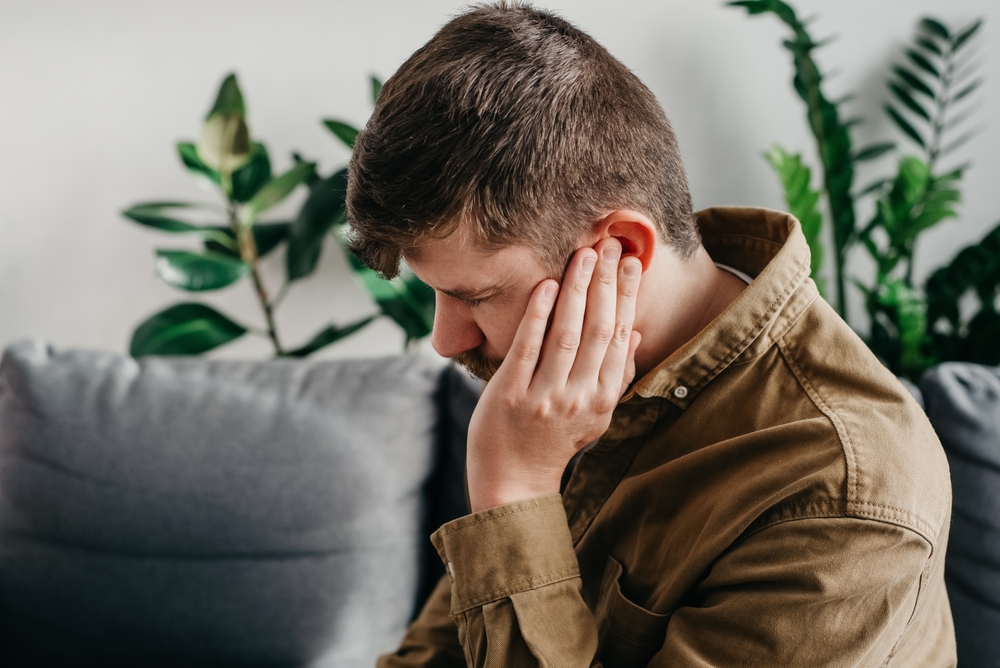Sinus infections are notorious for causing a range of unpleasant symptoms that make even the simplest tasks difficult. The onset of a sinus infection often begins with mild discomfort—a runny nose, mild headache, or pressure around the nasal area. These early signs are often a prelude to the full-blown infection that can leave you feeling miserable for days or even weeks.
While the congestion and pressure in your sinuses are typical sinus infection symptoms, these infections can also affect your ears. Because your ears, nose, and throat are interconnected, sinus issues can cause hearing problems. Let’s explore how sinus infections affect your ears and what you can do to prevent long-term damage.
The connection between sinus infections and your ears
Sinus infections occur when your sinus cavities become inflamed or filled with fluid. When this happens, the passageways connecting your sinuses, nose, and throat can become clogged, leading to uncomfortable pressure. This pressure is responsible for many of the unpleasant symptoms associated with sinus infections, such as headaches, facial pain, and nasal congestion.
But these symptoms don’t just affect your sinuses. Because your sinuses and ears are connected through the Eustachian tubes, fluid buildup can also make its way into your ears. When this fluid enters your middle ear, it creates a blocked or “plugged” feeling that can interfere with your hearing. In most cases, this type of hearing loss is temporary and improves once the sinus infection clears.
Temporary hearing loss and sinus infections
During a sinus infection, inflammation can cause fluid to accumulate in your Eustachian tubes. These tubes play a crucial role in maintaining pressure equilibrium in your ears, allowing them to function properly. When they become blocked, the pressure balance is disrupted, and your hearing may be affected. Many people with sinus infections describe this as feeling like their ears are “stuffed” or “plugged.”
Thankfully, once the infection clears up, this fluid drains out of the middle ear, allowing normal hearing to return. The length of time it takes for the infection to resolve depends on the cause. Bacterial sinus infections can often be treated with antibiotics, while viral infections generally clear up on their own over time.
However, not all sinus infections are created equal. If you experience chronic or recurring sinus infections, the risk to your hearing health becomes more significant.
Chronic sinus infections: a greater risk for hearing problems
While a single sinus infection can cause temporary hearing loss, chronic sinus infections can lead to more lasting damage. A sinus infection is considered “chronic” when symptoms persist for more than 12 weeks or when infections recur frequently over time. People who experience chronic sinus infections are at a higher risk of developing long-term complications, including hearing loss.
Chronic sinus infections cause prolonged inflammation in the sinuses, which can lead to extended periods of ear congestion. Over time, the repeated strain on your ears may cause permanent damage. In some cases, this damage may manifest as permanent hearing loss, which does not improve after the infection resolves.
Sinus infections and tinnitus
For some people, sinus infections may also trigger tinnitus, a ringing or buzzing sound in the ears. Tinnitus can be a frustrating condition, especially if it persists after the sinus infection has cleared. If you experience tinnitus during or after a sinus infection, it could be a warning sign of ear damage, and you should seek medical attention to address the issue before it becomes permanent.
Preventing sinus infection-related hearing loss
Fortunately, there are steps you can take to prevent sinus infections from affecting your hearing in the long term. Here are some strategies to consider:
Keep sinus infections in check
The best way to protect your ears is to prevent sinus infections from occurring in the first place. Take proactive steps to keep your sinuses healthy, such as:
- Staying hydrated
- Avoiding allergens or irritants that can inflame your sinuses
- Using a humidifier to keep nasal passages moist
- Treating colds promptly before they develop into infections
Seek treatment for chronic sinus issues
If you frequently suffer from sinus infections or if your symptoms linger for weeks at a time, consult a healthcare provider for treatment options. Treating chronic sinus problems promptly may reduce the likelihood of long-term ear damage.
Manage allergies
Allergies are a common trigger for sinus infections, as they can cause inflammation and mucus buildup in the nasal passages. If you suspect allergies are contributing to your sinus problems, speak with a doctor about allergy testing and management. Treating allergies effectively can help prevent recurring sinus infections and protect your hearing health.
Monitor ear symptoms
If you experience persistent ear congestion, hearing loss, or tinnitus during a sinus infection, it’s important to take these symptoms seriously. While temporary hearing loss is common, any symptoms that last beyond the infection may indicate more severe ear damage. Early intervention is crucial to preventing permanent hearing loss.
Find an ENT specialist near you
Sinus infections can be frustrating and uncomfortable, but they don’t have to result in long-term issues. By addressing sinus infections early, managing chronic symptoms, and keeping a close eye on your health, you can minimize the impact.
If you’re prone to sinus infections, find an ENT specialist in your area to explore your options.



